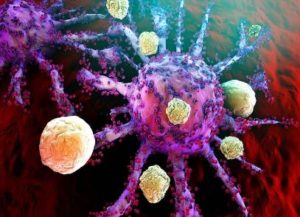
Cancer caused nearly 10 million deaths worldwide in 2020, with lung cancer contributing the highest number (1.80 million deaths).
The other most common causes of cancer death include colon and rectum, liver, stomach and breast. If detected early and treated effectively, many cancers can be cured. Currently, treatment of cancer usually includes surgery, radiotherapy, chemotherapy, hormonal treatments, and targeted biological therapies. A specific treatment regimen is followed for every cancer type. Breakthrough in cancer treatment, Japanese researchers have developed a new method for treating multiple types of cancer.
The new tumor-targeted alpha-particle therapy can generically treat several types of cancer, with fewer negative side effects than currently available methods, the researchers said. Results of their proof-of-concept study were recently published in Chemical Science.
Earlier studies have shown the presence of a compound called acrolein in cancer cells, which are almost absent from healthy cells. Initially, Tanaka’s team developed a technique to identify cancer cells, using a fluorescent compound and a specific type of azide. When azide and acrolein meet, they react, and the fluorescent compound lights up the cancer cells in the body. The technique simply helps detect cancer cells.
In the new technique, instead of attaching the azide to a fluorescent compound, they attached it to astatine-211, a radionuclide that emits alpha particles and kill cancer cells without harming surrounding cells.
As a proof-of-concept study, they tested the treatment in mice implanted with human lung-tumor cells. They found that tumors grew almost three times less and all mice survived when the astatine-211-azide probe was injected into the tumor. 80 per cent of the mice survived when the astatine-211-azide probe was injected into the bloodstream.
One tumor injection with only 70 kBq of radioactivity could effectively target and eliminate tumor cells, stated lead researcher Katsunori Tanaka from Japan’s RIKEN Cluster for Pioneering Research (CPR). Tanaka led the study along with Hiromitsu Haba at the RIKEN Nishina Center for Accelerator-Based Science (RNC).
This new method can be used to treat many kinds of cancer without any targeting vectors, such as antibodies or peptides, Tanaka added.
Also, it can also treat very early-stage cancer even when the location of the tumor is not known.
The Japanese researchers are now looking for a partner to begin clinical trials to treat cancer in humans using this new method.




 Driving Naari Programme launched in Chandigarh
Driving Naari Programme launched in Chandigarh






























